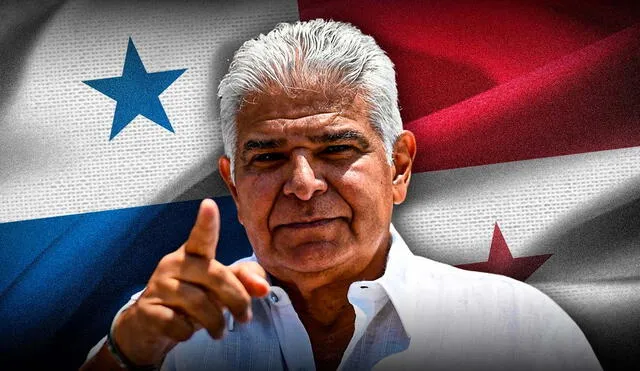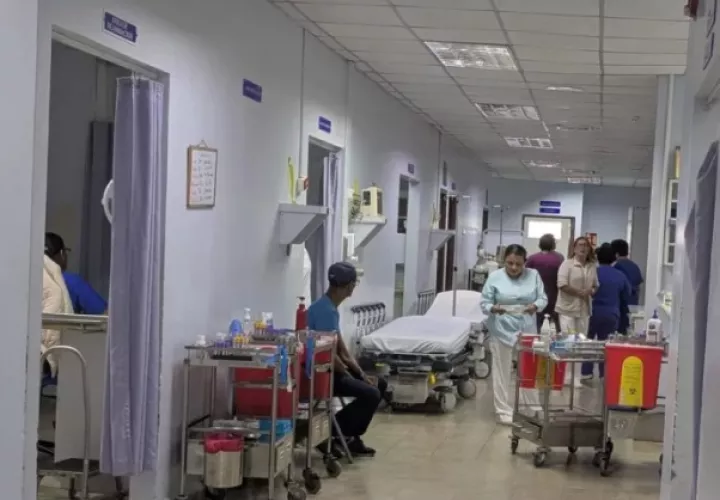Panama’s Report to the Nation: President Mulino’s Controversial Reforms and Transformation Promises in Year One
President José Raúl Mulino, speaking on Tuesday July 1 during the inauguration of the second term of the first legislature of the National Assembly took advantage of this session to review his first 12 months in office before the nation.

Panama City, Panama: The National Assembly began the first legislature of the second term this Tuesday, July 1, attended by President José Raúl Mulino, who presented his report to the Nation exactly one year after assuming the presidency. President José Raúl Mulino completed his first year in office amid controversy over the reform of the Social Security Fund (CSS) and an ambitious state modernization plan that promises to transform Panama’s public administration. In his opening remarks, Mulino congratulated Representative Jorge Herrera on his election as the new president of the Assembly and emphasized that his appointment “reflects the democratic will for the self-determination of this state body.” The president called on representatives from all political parties to work together “with respect and a sense of patriotism to promote laws that foster the well-being and development of the people who elected them.“
“I look forward to collaborating constructively with the new president of the Assembly in an atmosphere of dialogue and commitment to the common good,” the president declared. During his speech, Mulino sent a forceful message about his governing style: “This result sends a clear message: in this new way of governing, there is no pressure, conscience-buying, briefcase-busting, or bribery.” The president emphasized that he “deeply respects the separation of powers” and celebrated the fact that the election of the legislative leadership was “closely contested, transparent, and fair.” Mulino revealed that in recent days he met in person or by telephone with various representatives from all parties, but emphasized that these meetings were “never secret, always in the Palacio de las Garzas and not hidden away in strange recesses.”
The Legacy of the Past: Debts and Structural Problems
During his speech, Mulino criticized previous administrations. “I would have liked to be able to talk only about the future and not about everything we had to resolve from the past,” he declared, referring to what he described as a “heavy legacy” that consumed resources, time, and efforts throughout the year. The president denounced having received a CSS in critical condition, a state with the highest public debt in its history and on the verge of losing its investment grade. “We received halted projects, ministries and entities battered by the neglect of administrations that put politics above providing real solutions to the people,” he stated. During this first year, the government filed 429 complaints for findings related to property damage. “We uncovered a real mess in which the hands of the political elite were involved,” Mulino stated, referring to deals involving unfinished projects with exorbitant prices.
Reform of the Social Security Fund
The CSS reform became the most controversial issue of the first year of his administration. Mulino defended the measure as “imperative and absolutely necessary,” explaining that the system was collapsing: pensions couldn’t be guaranteed, the surgical backlog was months long, and medicines were virtually nonexistent. “Turning a blind eye and continuing with the same old ‘hooky’ policy, hoping it would blow up for someone else, wasn’t an option for me,” the president declared. The reform process began on August 9, 2024, with meetings at the Palacio de las Garzas.
Two committees were established—for Health and Disability, Old Age, and Death—with unions, business associations, and patient representatives participating in two months of weekly meetings. The final draft, approved by 48 of the 71 members of the National Assembly, differs significantly from the Executive’s original proposal, the president stated. “Sixty percent of the Executive’s proposal was modified after five months of open debate,” Mulino emphasized. One of the decisions Mulino highlighted was postponing any changes to the retirement age. “It will be during the upcoming election campaign that the candidates will have to take a clear position before the country,” the president explained.
Clashes
Protests against the reform generated significant tensions. Mulino criticized union leaders and politicians who “jumped the fence and took violent action,” taking advantage of the reform to try to destabilize the government. “They manipulated and distorted the information,” the president charged, noting that “eight out of ten people arrested for violent acts do not have social security contributions.” The president was especially critical of the teaching profession, noting that “well-educated, educated, and well-educated teachers have fallen into the trap of lies spread by some ideologically biased leaders.” He made a direct appeal to them: “Return to the classrooms and save the school year.”
The Controversy over the Memorandum with the United States
Another topic that generated debate was the Memorandum of Understanding signed with the United States. Mulino categorically rejected interpretations that construe it as a violation of national sovereignty. “It does not contemplate military bases or territorial cession of any kind and can be unilaterally canceled by Panama with six months’ notice,” the president explained, adding that it is one of at least 23 similar agreements signed since 1990. Mulino reaffirmed his commitment to the Canal’s neutrality and announced that 2025 will be declared the year of “Constitutional Literacy,” with a view to a future Constituent Assembly.
Economic Achievements and International Projection
In the economic sphere, the president emphasized that Panama is regaining credibility. Projections place the country at GDP growth close to 4%, a result of “responsible management and the efficient use of public resources.” The Government’s Strategic Plan reviewed more than 2,500 public investment projects, achieving cost reductions without affecting public works and services. At the international level, Panama is moving toward its exit from the European Union list and has increased its interaction with the OECD. The country has assumed a prominent role in the UN Security Council, where it will hold the presidency in August, and has been designated as the regional headquarters for the European Union’s Copernicus Project.
Modernization of the State and Infrastructure Works
Mulino announced an ambitious state reform that includes transforming the National Mortgage Bank into an Institute for the Promotion of Low-Income Housing, with an 80% reduction in the current workforce. The president also announced that the Agricultural Development Bank will become an Agricultural Development Institute, while the Ministry of Women will become a Secretariat within the Ministry of Social Development. He also announced that ProPanama will be integrated into the Ministry of Commerce. In terms of infrastructure, the government implemented more than 400 million euros in MOP projects, completed the expansion of the Presidente Chiari Highway, and made progress on projects such as the Fourth Bridge over the Canal, whose additional cost would allow for the “construction of 35,000 new homes or six cancer hospitals.”
Health Sector
In terms of health, more than 1,000 cardiovascular surgeries and 800 urological surgeries were performed thanks to the Surgical Rescue Plan. The High Complexity Pediatric Hospital and the Cancer Hospital were inaugurated in the City of Health. For the first time, the purchase of medications for chronic and rare diseases was centralized, and the “Cheaper Medications” program was launched with discounts of up to 96% on essential medicines. In terms of security, the government achieved a 99% reduction in irregular migration through Darién, dropping from more than 500,000 people in 2023 to record lows after closing illegal routes. The National Police achieved a 90% effectiveness rate in homicide arrests, seized more than 99 tons of drugs, and captured 66 of the country’s most wanted individuals.
Future Projects and 2025 Agenda
For the coming months, Mulino announced important tenders, including the leachate treatment plant at Cerro Patacón, the San Miguelito cable car, and the restoration of the Wilcox House in Colón. In August, the San Isidro Policentro will be delivered, providing services to more than 150,000 people. The bridge over the Bayano River and the Armando Dely Valdés stadium in Colón will be inaugurated in September. At the end of his speech, Mulino acknowledged that “some don’t consider me the most likable, nor the most popular,” but he reaffirmed his commitment: “I say what I think and I do what I say. Maybe I’m not always well-liked, but I have the best of intentions and one motivation: to serve Panama.” The president extended his hand “to those who see Panama with hope” and invited them “without retaliation, to put the country and its people first,” promising to take advantage of the remaining four years “with more growth, more public works and services, more opportunities, more jobs, and the hope of a better life.” President José Raúl Mulino





